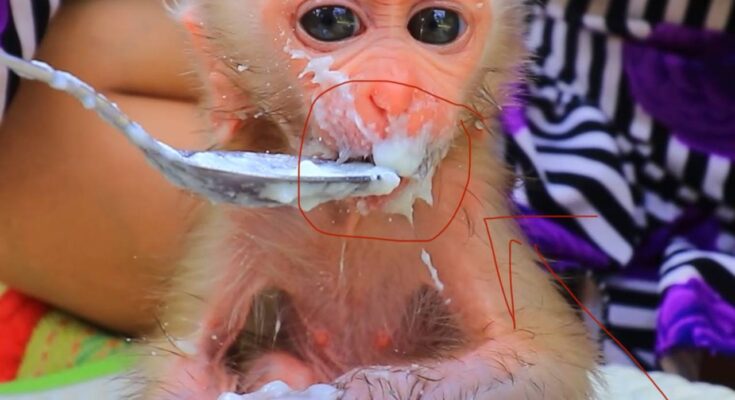Monkeys, like humans, require special care and nutrition during recovery from illness. Whether in wildlife sanctuaries, research facilities, or as part of rehabilitation programs, post-illness feeding strategies play a critical role in ensuring a monkey’s full return to health. Feeding monkeys effectively after sickness involves more than just offering food—it requires careful attention to their physical condition, dietary needs, and natural behavior.
1. Understanding the Impact of Illness on Appetite and Digestion
Illness can significantly reduce a monkey’s appetite and impair digestion. Gastrointestinal infections, respiratory issues, or parasitic infestations often leave them dehydrated and nutritionally depleted. First and foremost, it is essential to rehydrate the monkey using electrolyte solutions. These help restore fluid balance and prepare the digestive system for food intake.
2. Start with Easily Digestible Foods
Once hydration is restored, start reintroducing food slowly. Begin with soft, easily digestible items that are gentle on the stomach. Examples include:
- Ripe bananas
- Boiled sweet potatoes
- Mashed papaya
- Steamed rice or oatmeal (unsweetened)
These foods are not only mild but also provide quick energy and fiber without overburdening the digestive system.
3. Introduce Nutrient-Dense Options Gradually
After the monkey tolerates soft foods, introduce nutrient-dense fruits, vegetables, and proteins. A recovering monkey needs extra vitamins, minerals, and proteins to rebuild tissues and support the immune system. Suitable additions include:
- Leafy greens (e.g., spinach, kale)
- Cooked legumes
- Boiled eggs (shelled and mashed)
- Small amounts of yogurt for probiotics
It’s important to observe any food sensitivities, as some monkeys may develop temporary intolerances after illness.
4. Supplement When Necessary
In some cases, supplementation may be required. This could include vitamin C (especially for species like squirrel monkeys), iron (after blood loss), or probiotics to restore gut flora. However, supplementation should always be done under the guidance of a veterinarian, as excesses can be harmful.
5. Monitor Feeding Behavior and Weight
Consistent monitoring is key. Weigh the monkey regularly to ensure they are regaining lost weight. Observe their behavior—lethargy, refusal to eat, or regurgitation may indicate ongoing issues or the need for dietary adjustments.
6. Environmental and Emotional Factors Matter
A monkey’s environment during recovery can impact its appetite. Ensure a quiet, stress-free space with familiar smells and minimal disturbances. Offer food in a way that mimics natural foraging behavior—such as hiding treats in leaves or enrichment toys—to stimulate interest and activity.
Conclusion
Feeding monkeys effectively after they are sick is a balance of science, observation, and compassion. With the right foods, hydration, and care, most monkeys can make a strong recovery and return to their usual vitality. Always collaborate with veterinarians or primate care specialists to tailor feeding plans to the individual monkey’s species and health condition.



